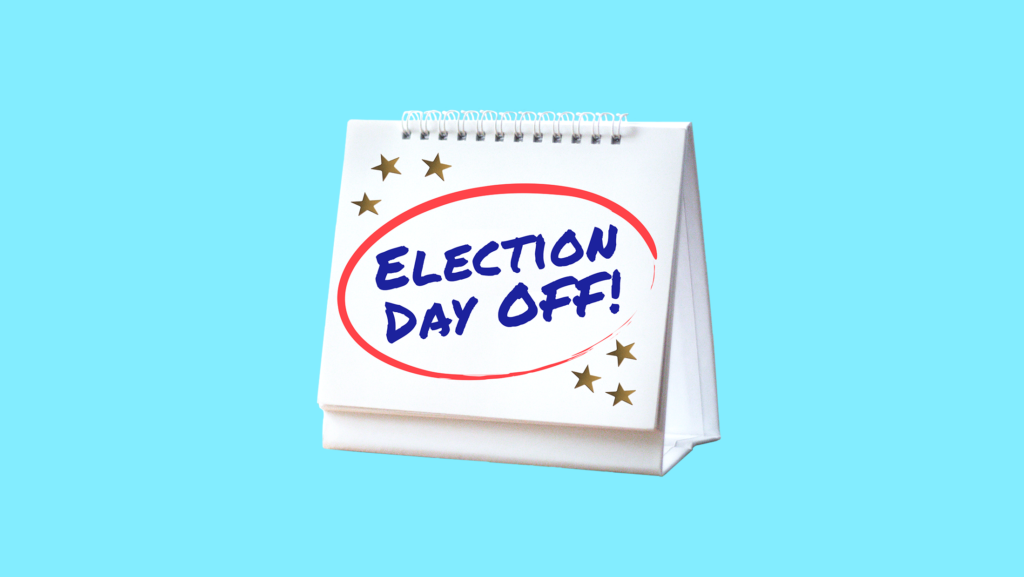Companies Must Help Strengthen Our Democracy

When a white-supremacist mob stormed the Capitol on January 6, it was an attack on our democracy and part of an ongoing effort to disenfranchise millions of voters. It was also a slap in the face to the thousands of Republicans, Democrats and Independents across the country who volunteered their time to make sure safe and secure voting prevailed during a pandemic. More people voted than ever before, and even though every effort was made to find fraud, local election officials report that the November elections were a resounding success.
Instead of celebrating this triumph of democracy, or trying to appeal to those new voters, lawmakers in 47 states are attempting to make it harder for people — particularly people of color, poor people and young people — to access the ballot.
Think of that. It would be like banning Serena Williams from the U.S. Open because she’s won too many Grand Slams.
Lawmakers should realize that both major parties did well in races up and down the ballot in 2020 — but one team would rather change the rules than do the hard work of competing.
As we saw when the outdoor industry, led by Patagonia, moved their tradeshow from Utah to Colorado after state legislators failed to stand up for public lands, companies can have real influence on the ground. They should use it to protect our democracy.
As my first boss the late John Lewis wrote in a posthumous essay for the New York Times, “Democracy is not a state. It is an act, and each generation must do its part.” Among those who took up this prescient call to action were business leaders who made time for their employees to vote in the recent election, who encouraged their communities to serve as poll workers and who opened their places of work to serve as poll locations and who continue to defend the right to vote freely, safely and without retaliation.
For Patagonia, voting accessibility is a priority. It creates the foundation for progress on every issue we care about. To save our planet from the climate and nature crisis, we have to elect leaders who share our sense of urgency. That’s why, in 2016, 2018 and 2020 we closed our stores and offices to make the point that Election Day is for voting, not shopping. We’ve also pushed for greater corporate mobilization as co-founder of Time to Vote, a coalition of nearly 2,000 companies that joined together to make it as easy as possible for employees to vote. And just recently, in response to a discriminatory voter suppression bill passed in Georgia, we donated a total of $1 million to the Black Voters Matter Fund and The New Georgia Project. While more companies stepped up to encourage voting this past election season and are speaking out against restrictive voting laws, there’s still much more work to be done. As stakeholders in our nation’s future, business leaders cannot afford to be silent about the right to vote. Participation in our electoral system will make or break our country, so we must protect it. Beyond joining Time to Vote, here are a few ways business leaders can collectively raise our voices:
Second, companies should advocate for both the For the People Act and The John Lewis Voting Rights Advancement Act (VRAA) to strengthen voting rights across the country. The For the People Act would eliminate gerrymandering, register eligible voters automatically and re-enfranchise felons who have served their sentences (immediately restoring voting rights to 4.7 million citizens). The VRAA would provide a long-overdue response to the Supreme Court’s Shelby County v. Holder decision in 2013, which gutted the Voting Rights Act of 1965. Just 24 hours after the court’s decision, states began implementing discriminatory laws, and the effects are clear every time voters of color struggle to cast their ballots. Companies should use their platforms and their lobbying power to advocate for federal protections and make clear that nobody — Republican or Democrat — should play politics with the right to vote.
Finally, we need to block efforts to roll back the clock at the state and local levels. Already this year, legislators across the country have introduced 361 bills to restrict voting access. In my home state of Georgia, Governor Brian Kemp recently signed a law that limits absentee voting and ballot drop-box locations, increases voter ID requirements and even bans giving food and water to voters waiting in line at the polls. These efforts, made in direct response to the influence of Black voters, are both ridiculous and partisan. As we saw when the outdoor industry, led by Patagonia, moved their tradeshow from Utah to Colorado after state legislators failed to stand up for public lands, companies can have real influence on the ground. They should use it to protect our democracy.
Ultimately, the strength of our democracy depends not on any one voice, company, or state protecting access to the ballot box, but on every vote being counted everywhere. It’s not enough for the business community to denounce attacks on our democracy — we must also act. Together, we can help to restore and strengthen our democracy.
Corley Kenna is the Director of Global Communications and Public Relations at Patagonia. Previously, she worked for Congressman John Lewis, Hillary for President and the Obama administration.